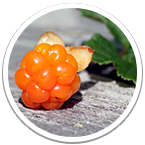Nutrition
Nutrition plays an important part in the prevention of lifestyle diseases. A healthy diet, sufficient daily physical activity and sleep promote health and reduce the risk of many diseases. Healthy nutrition is formed of the choices people make every day, which are crucial in the long run.
Carbohydrates, fats and proteins are energy-yielding nutrients that the body uses to produce energy.
Good sources of carbohydrates are whole grain, vegetables, berries, fruit and nuts. The best sources of soft or unsaturated fats are vegetable oils and fish. Protein sources include from nuts, seeds, beans, peas, cereal products and soybeans. The best animal protein sources are low-fat dairy products, eggs, fish, chicken and lean meat.
Our vital processes require energy every day, but the supply and consumption of energy must be in balance.
Nutrition recommendations
Finnish nutrition recommendations are based on Nordic nutrition recommendations.
You can find all nutrition and beverage recommendations for different ages and target groups on the website of the Finnish Food Authority:
- Nutrition and food recommendations (Finnish Food Authority)
- Beverage recommendations (Finnish Food Authority)
The Finnish Food Authority's website also contains instructions on the safe use of foodstuffs.
- Instructions for safe use of foodstuffs (Finnish Food Authority)
Nutrition during pregnancy
A good diet during pregnancy is not different from the normal recommended diet. Favour fish species listed in the WWF Fish Guide. However, avoid pike altogether.
Adequate intake of folate and folic acid is particularly important for pregnant women as it reduces the risk of a neural tube defect (NTD) of the foetus. NTD is a severe congenital malformation.
A diet rich in folate is important already at the pregnancy planning stage and throughout pregnancy. A woman planning on becoming pregnant should also start taking a folic acid supplement about two months before stopping contraception.
Infant nutrition
Full breastfeeding is recommended until the baby is 4–6 months old. Small taster servings of solid foods may already be given at the age of 4 to 6 months, but not before the age of 4 months. From the age of six months onwards, give solid food.
Taster servings should initially be small (the tip of a spoon) after breastfeeding. Continue breastfeeding at the baby’s pace, because breast milk is still the child's primary nutrition. Breast milk is sufficient for children born full-time and normal weight until the age of six months.
Administer vitamin D individually to children aged 0 to 12 months, depending on whether the child is fully breastfed or receives infant formula or follow-on formula.
Nutrition of a small child
It is important for small children to regularly eat 4–6 meals a day. For main meals, follow the plate model: half of the plate should be vegetables, one quarter a carbohydrate-containing side dish (such as potato or pasta) and one quarter a protein source (vegetable protein, fish, chicken or meat).
A suitable quantity of vegetables per day is five portions of vegetables, fruit or berries; each portion should be the size of your palm.
A small child needs 20–30 g, or 4–6 teaspoons of visible fat per day. Foods containing hidden fat should be avoided.
The recommended daily amount of cereal products is 4 servings (one serving = one slice of bread or about 1 dl of cooked cereal side dish, pasta, rice or porridge). The recommended daily amount of liquid milk products is 4 dl; for cheese products, the recommended quantity is 1 slice per day.
The best beverages are skimmed milk, buttermilk or a fortified vegetable beverage. The best drink for thirst is water, not fat-containing milk or sugar-containing juice.
Nutrition and food recommendations (Finnish Food Authority)
Beverage recommendations (Finnish Food Authority)




